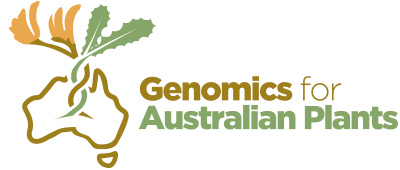Solanum centrale (Bush tomato, kutjera)
Aim: Reference genomes (Phase 2 project)
Project initiation: Oct 2020
Jan 2021 update:
The project was abandoned as the team could not obtain permission from the local Indigenous groups and to set up a benefit sharing agreement.
Project collaborators:
- Heidi Nistelberger | Department of Biodiversity Conservation and Attractions
- Dave Edwards | University of Western Australia
- Jacqueline Batley | University of Western Australia
- Philipp Bayer | University of Western Australia
Project description:
Indigenous Australians had a profound impact on the landscape, not only through the use of fire but also in the active dispersal and cultivation of plants for use as food, medicine and totemic purposes. These historical practices are anticipated to have left signatures in the genomes of highly utilised plant species. It is remarkable then, that research in this area has been scarce and represents a fundamental gap in our knowledge of historical human-plant interactions in the Australian landscape.
This project will help to address this knowledge gap by providing the genome for one of the most culturally and economically important species, the Desert Raisin (Solanum centrale) of the Solanaceae (Tomato) family. By sequencing the Desert Raisin genome, we will enable future research into the historical use of this species in Australia. In addition, an annotated genome will provide benefits relating to cultivation of this species in the Indigenous-run, Australian Bush Tucker industry and guidance for its use in the restoration of degraded arid landscapes.
